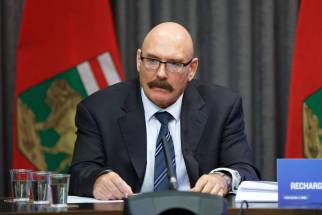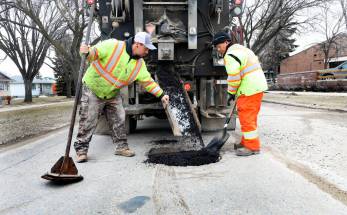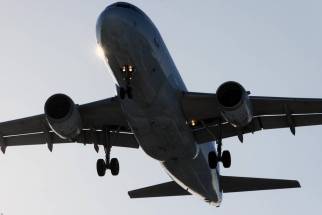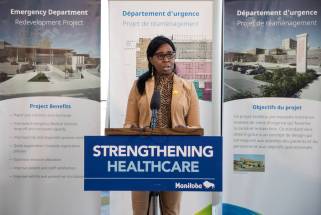Winnipeg airport passenger volume, revenue plunged in 2021
Read this article for free:
or
Already have an account? Log in here »
To continue reading, please subscribe:
Monthly Digital Subscription
$0 for the first 4 weeks*
- Enjoy unlimited reading on winnipegfreepress.com
- Read the E-Edition, our digital replica newspaper
- Access News Break, our award-winning app
- Play interactive puzzles
*No charge for 4 weeks then price increases to the regular rate of $19.00 plus GST every four weeks. Offer available to new and qualified returning subscribers only. Cancel any time.
Monthly Digital Subscription
$4.75/week*
- Enjoy unlimited reading on winnipegfreepress.com
- Read the E-Edition, our digital replica newspaper
- Access News Break, our award-winning app
- Play interactive puzzles
*Billed as $19 plus GST every four weeks. Cancel any time.
To continue reading, please subscribe:
Add Free Press access to your Brandon Sun subscription for only an additional
$1 for the first 4 weeks*
*Your next subscription payment will increase by $1.00 and you will be charged $16.99 plus GST for four weeks. After four weeks, your payment will increase to $23.99 plus GST every four weeks.
Read unlimited articles for free today:
or
Already have an account? Log in here »
Hey there, time traveller!
This article was published 28/04/2022 (1322 days ago), so information in it may no longer be current.
With passenger traffic running at one-quarter of pre-pandemic levels, the Winnipeg Airports Authority needed plenty of government support — as well as relief from its debt holders — to make it through 2021.
However, “We have recently had some of our busiest days since the pandemic. We have had a very busy spring break season, and we are certainly looking forward to a positive recovery,” new chief executive officer Nick Hays said at the WAA annual meeting Thursday, held at the end of the departures lounge.
Winnipeg Richardson International Airport counted 1.2 million passengers in 2021, which was even slightly less than 2020, when it had three months of regular traffic before the pandemic hit. Last year’s count was only about 25 per cent of 2019’s 4.5 million passengers.
Passenger totals at the Winnipeg airport had not been that low since 1971.
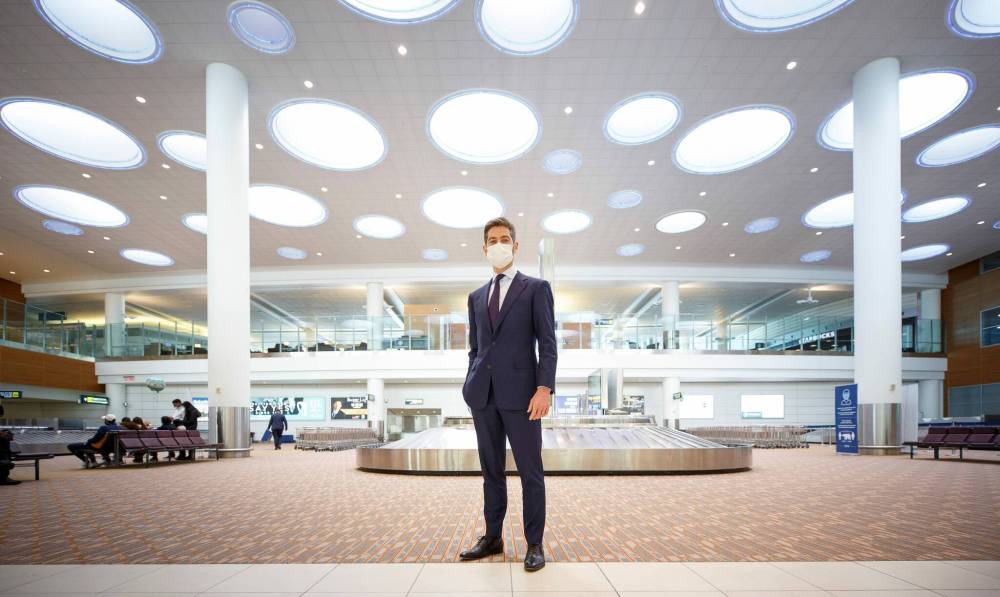
While travellers are reboarding planes with gusto these days, Hays said it will “take a few more years to recover, in terms of passenger volumes… and take a few more years beyond that for us to work off all the extra debt we had to incur during the pandemic.”
Total revenue for 2021 was $75.1 million, compared to $139.8 million in 2019, when it recorded a profit of $3.4 million.
In September 2020, the WAA increased its airport improvement fee to $38 from $20, which is included in the price of every flight out of the Winnipeg airport.
The revenue statement for 2021 included $7.8 million in federal government support. Total federal relief in 2021 totalled $13.9 million, including the forgiveness of $3.5 million in land lease charges.
That assistance helped the WAA reduce its net loss from $48.1 million in 2020 to $34.2 million in 2021.
“One constant amidst all this change has been cargo. It is a real bright spot for us in Winnipeg. It remains a key focus and source of growth for us now and into the future.” – CEO Nick Hays
Last year, it had to issue another $100 million in debt and it was granted three years of relief from existing debt holders after the WAA — and every other airport in Canada — breached its debt covenants.
At the end of 2021, WAA had $633 million in long-term debt.
It has quickly become obvious to Hays, who replaced Barry Rempel as CEO at the end of February, how significant the growth of the cargo business is to Winnipeg operations.
“One constant amidst all this change has been cargo. It is a real bright spot for us in Winnipeg. It remains a key focus and source of growth for us now and into the future,” Hays said.
Cargo landings and the gross weight of cargo was up every quarter last year, compared to 2020 and 2019.

“Those increases reaffirm our commitment to continue to make significant, targeted, investments in our cargo campus to ensure the community has what it needs to succeed,” Hays said.
While the WAA slashed capital expenditure last year to save costs, it continued to invest in the development of a $62-million multi-tenant air cargo logistics facility to be built at the site of the current Air Canada cargo building at the end of Sargent Avenue.
Hays was reluctant to say exactly how much the airport earns in revenue from cargo business, other than to say it is “substantial and growing.”
However, there is some question about the long-term growth in air cargo in light of global trends to reduce greenhouse gas emissions and current vulnerability of global supply chains.
Hays said he’s only heard talk about increasing volumes from WAA’s key cargo partners.
“With all the talk about the environment being a top priority, air cargo is the most polluting form of transport known to man. How do you square that circle?” – Logistics expert Barry Prentice
Meantime, Barry Prentice, a long-time logistics expert at the University of Manitoba and former member of the WAA board of directors, wonders just how sustainable air cargo is.
“With all the talk about the environment being a top priority, air cargo is the most polluting form of transport known to man,” he said Thursday. “How do you square that circle?”
While air cargo traffic increased during the pandemic, the number of direct passenger routes out of Winnipeg has declined.
United Airlines recently cancelled its direct service to Chicago and Denver, and currently the only non-domestic destination with regular scheduled service is to Minneapolis.
While Hays said he could not give any specifics about any new connections on the horizon — there are now direct flights to Kitchener-Waterloo, Ont., that weren’t available before the pandemic — he’s heard from the community “loud and clear about the need to bring back those important routes including to the U.S.”
martin.cash@freepress.mb.ca

Martin Cash has been writing a column and business news at the Free Press since 1989. Over those years he’s written through a number of business cycles and the rise and fall (and rise) in fortunes of many local businesses.
Our newsroom depends on a growing audience of readers to power our journalism. If you are not a paid reader, please consider becoming a subscriber.
Our newsroom depends on its audience of readers to power our journalism. Thank you for your support.

